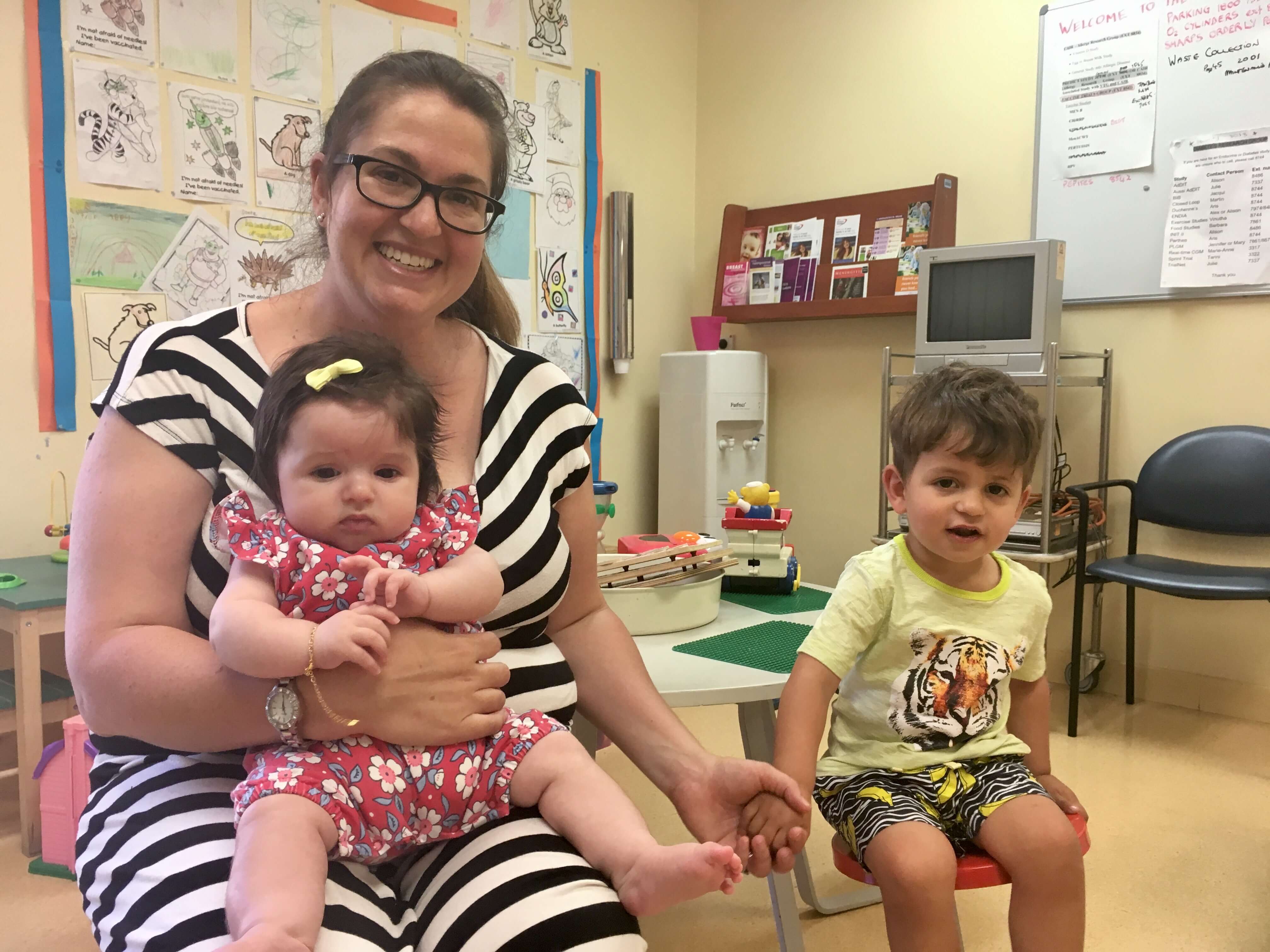Respiratory Syncytial Virus (RSV) occurs during the winter months in Perth and can be the cause of chest infections and breathing difficulties in young children, often requiring treatment in hospital.
RSV infection does not induce protective immunity, which means there is potential for infants to become infected more than once, even within a single RSV season. There is currently no routinely used medications to treat RSV and no vaccines to prevent it.
ALIOS
ALIOS is a study involving a new anti-viral oral medication for babies under 12 months of age hospitalised with RSV infections.
The study is investigating the effectiveness of giving a medication that has been designed to attack the RSV virus and prevent it from multiplying. It has been tested in adults with RSV and was found to reduce the amount of virus and the duration of illness.
The ALIOS study involves recruiting up to 260 children and 70 have already completed the first stage of the study by receiving one dose of the medication. Part 2 of the study commenced worldwide on 27 November 2015 and there are 94 participants currently recruited.
RSV Study in healthy pre-term infants
50 years of vaccine research has yet to produce a viable vaccine for RSV. This virus is the most common cause of bronchiolitis and viral pneumonia in young children, and pre-term babies are much more at risk of developing serious infection resulting in additional medical support and hospitalisations.
There are currently two things we can do to manage the virus:
- Prevent infection: there is a medication called Palivuzumab which acts like a passive vaccination. In this, the baby doesn’t have to generate their own antibodies as these come “ready-made”. However, this medication requires monthly injections over the RSV season (usually our autumn and winter months) and is very expensive. It is therefore reserved for very sick babies and babies born earlier than 28 weeks’ gestation.
- Offer supportive care: if a baby becomes seriously unwell, medical intervention is required. Amongst other things, additional oxygen and tube feeding may be provided.
We are involved in a study investigating the effectiveness of another medication, very similar to Palivuzumab, with the additional benefits that it would be given as a one-off injection at the start of the RSV season. It is hoped that this would protect the child for the whole season and be priced more like a vaccine.
This global study will involve about 1500 healthy babies born between 29 – 34 gestational age for one year. Eligible babies whose parents have consented to take part come to our clinic at Princess Margaret Hospital for seven visits during this time. Vaccination with either the study medication or a placebo (saline solution) is given at Visit 1. To measure the immune responses there are 4 blood samples throughout the study and regular phone contacts to monitor the baby’s health.
To date, our seven participants and their families have completed six visits. Our study doctors have also seen babies in the clinic for an additional nine respiratory illnesses and 13 skin reactions, mainly eczema and nappy rash. The final visits will take place next May.
It has been a pleasure having these families in the study and seeing these amazing “premmie” babies grow into feisty toddlers! Thanks to these families who have given up their time to come into the study to make a difference to the health outcomes for future babies.
Maternal RSV Vaccine Study
RSV causes symptoms such as runny nose, cough and trouble breathing, and is so common that almost every baby is exposed to the virus by the age of two. Many children experience mild symptoms that are mistaken for the common cold and get better without treatment. Newborn babies under 6 months of age can develop more severe complications such as bronchiolitis (inflammation of the small airways in the lungs) or pneumonia and may require hospitalisation due to the infant not being able to feed or requiring oxygen.
In conjunction with 80 study sites in 11 countries around the world, the Maternal RSV Vaccine Study aims to determine whether an RSV vaccine given to pregnant women during the third trimester can protect newborn babies from infections. Similar clinical studies have given vaccines to pregnant women and have been proven to protect newborn babies against tetanus, pertussis (whooping cough) and influenza. To help determine if the vaccine is effective against RSV, some pregnant women will receive a single injection of the investigational RSV vaccine and others will receive a placebo vaccine.

The safety of this RSV vaccine has been tested in nine complete or ongoing research studies in over 2,000 people. Safety data have been analysed in people of all ages, including children, young healthy adults and pregnant women. To date, the RSV vaccine has been well-tolerated and, most importantly, no safety concerns have been identified in the current trial.
The study enrols pregnant women with an expected delivery date in Perth from approximately April to July each year. RSV is most abundant during the winter months, so infants born during this time are most at risk. If you are pregnant, aged 18 to 40 years and interested in joining the study, please contact our study staff at maternalrsv@telethonkids.org.au or 0439 783 610.
